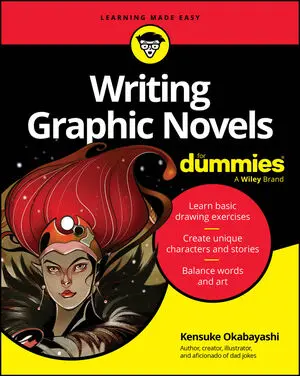Eliminating unnecessary and overused words in your essays
Extra words in a sentence are as useless as a fifth wheel on an ATV four-wheeler. They not only serve no purpose, but also inhibit forward progress. Unnecessary and overused words also distract your reader’s understanding of your message.
When you eliminate unnecessary words and avoid overused words, you communicate a stronger message with fewer words. You say more with less. Here’s a two-step process for eliminating unnecessary and overused words:
- Test the need for every word in a sentence and delete unnecessary words.
- Study this previous sentence. These are the unnecessary words you can cross out:
- Test the need for every word in a sentence and delete unnecessary words.
- Now look at the remaining words. Can they be reduced further? Yes:
- Avoid wordiness.
- That’s how writers build style.
- If a word or expression sounds familiar and you hear it regularly in spoken language, replace it. Here’s an example:
- Overused words: Back in the day, first-year students were not permitted to park vehicles on campus.
- Revised: In the 1990s, first-year students were not permitted to park vehicles on campus.
Steering clear of style sabotage
Building style not only includes what you add to your writing, but also what you subtract from your writing. Here’s a look at additions by subtraction. Avoid the following style imposters.
Repeating words
As a general rule avoid repeating key words in the same sentence. Steer clear of writing a sentence, such as in the following:
- Original: Children should wear bicycle helmets because helmets are inexpensive and wearing helmets protects against head injury.
- Revised: Children should wear bicycle helmets because they’re inexpensive and protect against head injury.
Self-referencing
Eliminate self-referencing yourself as the author, such as in the following:
- Original: When I was deciding on my topic for my research paper, I chose to write about wind energy.
- Revised: I chose to write about wind energy.
Other self-references include the following phrases:
| The idea came to me when | My friend suggested I include |
| From my perspective | As I see it |
| When I thought about | From my perspective |
| I discovered that | It seems to me |
Writing like you talk
Have you ever recorded yourself, listened to it, and tried to figure out what you said? People think at 800 words per minute, talk at 125 words per minute, and write at 10 words per minute. If you write like you talk, you’re going to have a bundle of overused words and no place to use them.
Write in the pattern you talk. Identify a topic and follow it with an action verb, as in the following:
- Talking pattern: The person the professor talked about who wrote the book The Great Gatsby was F. Scott Fitzgerald.
- Writing pattern: The professor said F. Scott Fitzgerald wrote The Great Gatsby.
Avoid sources of contention in college writing
Sources are high-priority to your college writing professors, who usually read the reference page before reading the content of your research paper. Here are categories of sources that your professors don’t want to see:
- Outdated sources generally older than ten years, although some topics are outdated after three years
- .com (commercial) sites where information is influenced by money
- Social media posts and personal websites representing personal opinion
- Sources that lack citations, indicating lack of validation by the academic community
- Personal websites
- Movies
- Novels and similar literary fiction — unless, of course, you’re writing a literary topic
When you have questions about a source, ask your professor or a reference librarian.






